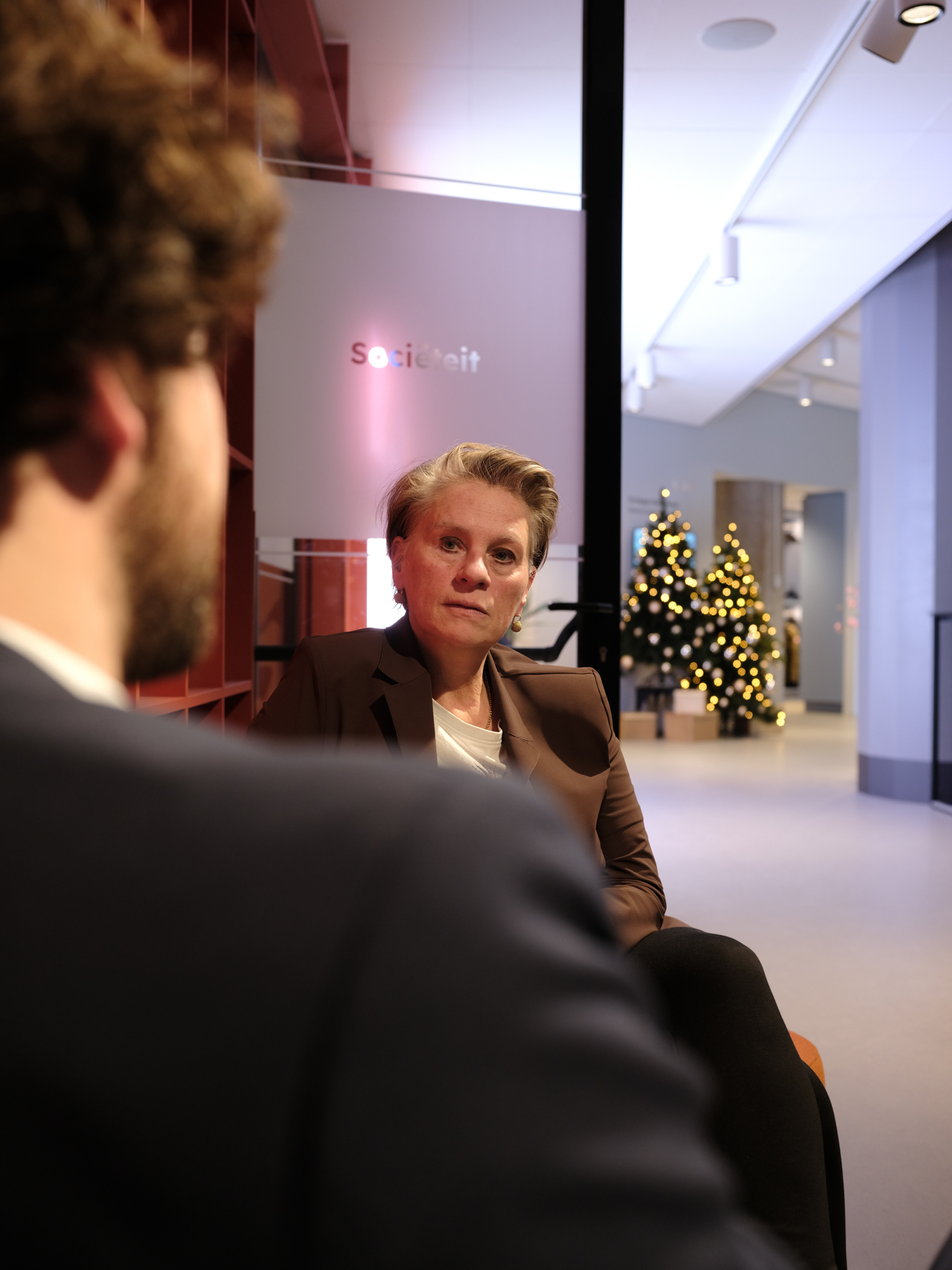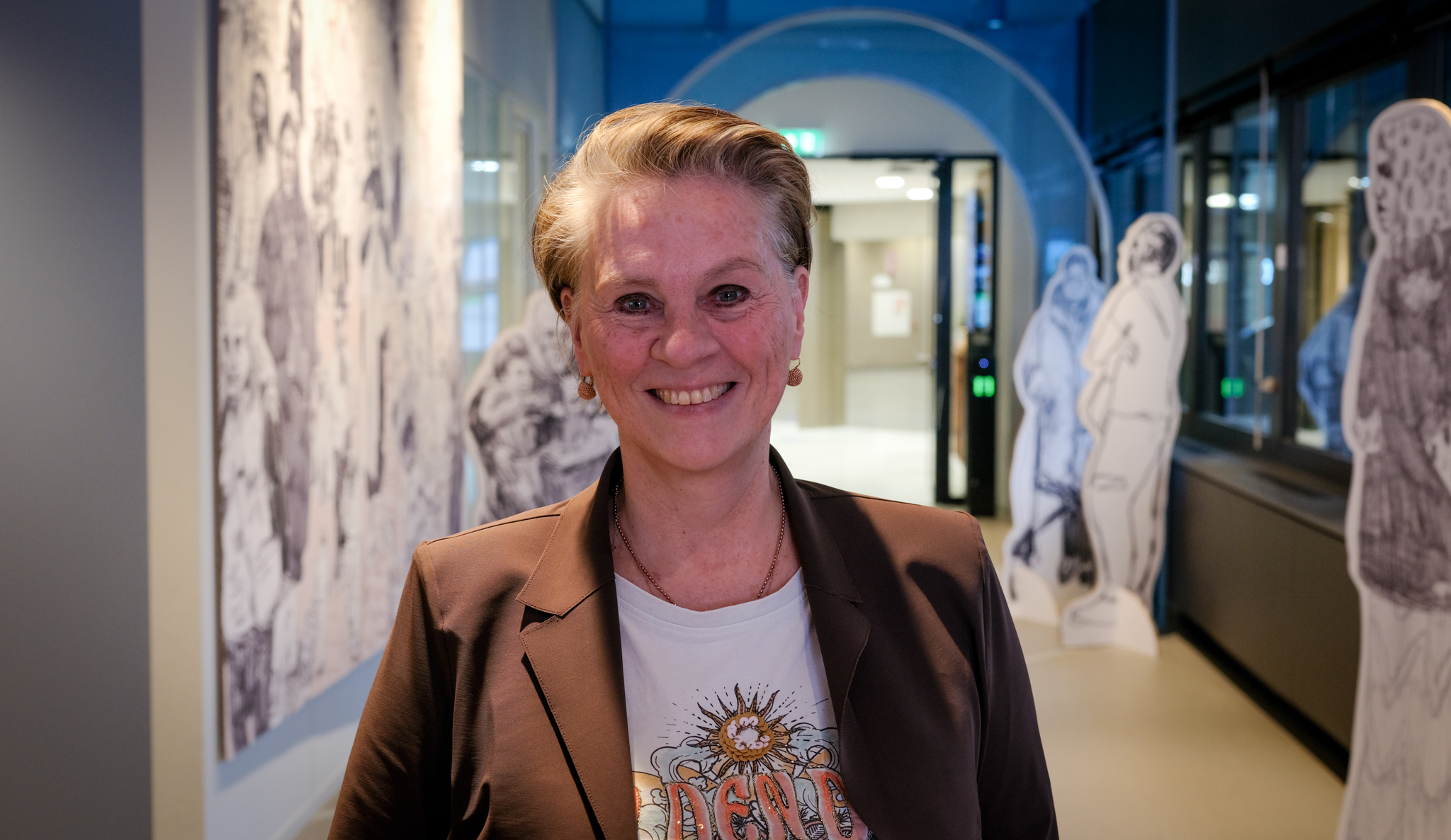"I hope that we will have good conversations, work better together, have mutual understanding and ask questions of each other. Because we solve problems through positivity and connection." Extraordinary professor, crown member of the SER and self-employed entrepreneur Josette Dijkhuizen looks back on an eventful year. In conversation with Sem Overduin, Manager of Public Affairs at HeadFirst Group, Dijkhuizen looks back on 2024. She talks about good and wise self-employment, why sustainable employability is such an important issue for all workers in the labor market and her appointment as crown member of the SER.
How do you look back on last year, regarding the zzp file?
It is apparent to everyone that there has been a tremendous amount of discussion about the zzp dossier, which everyone has to think and say something about. What I do find difficult as a scientist is that more and more opinions and facts get mixed up. Of course you are allowed to have an opinion, but if that gets mixed up, then the discussion becomes murky. Lately, you couldn't open the newspaper or you'd see at least three articles about it. I understand that it is quite difficult for self-employed people to keep track of it all. If you read every time that it is so confusing and unclear, you automatically start thinking, "it must be very confusing." As a result, there has been a lot of panic soccer in recent months, which I think is a shame.
How exactly did that come about? Can you put your finger on it?
I think that has to do with several events. For example, one such momentum was the decision of a large organization to stop hiring self-employed workers. When that is then shared with the outside world, everyone is quite shocked. But of course the specific situation has to be taken into account. The media then immediately get on top of it and such a discussion flies in all directions. That immediately makes it very difficult, because the group of self-employed people is enormously diverse and suddenly the discussion is conducted as if every self-employed person is the same. The recent letter from the Ministry of Finance is another such momentum. Surely we have known for decades that there are very many self-employed people working in the government? So why are we suddenly shocked by that number? And let's face it; it's also just pretty complicated. We have to talk about legislation, possible legislation, the enforcement moratorium, and the diversity of the group of self-employed people. The great danger has been that everyone has to have an opinion on it. And sometimes I also think: the law has been around for a long time huh. Just because we tolerated it doesn't mean it was accepted. I have been self-employed for twenty years now and I also know that I have to be careful with very long interim jobs. That's nothing new.
You are, of course, an example of good entrepreneurship. You made a conscious decision to do it, you are aware of what it all means for you with regard to illness, social security and your old-age provision. That is not true for everyone.
Some of the self-employed also have it very well organized. But some have not. I have no judgment on that, but they have been sucked into this development without being properly informed about what it all means. And we must also look at the side of principals. Some clients have also allowed it all to happen, and in some sectors clients have little choice but to work with zzp'ers.
Does the self-employed need more tools and information?
Yes, but I also think that's really the role of a self-employed person themselves. Sometimes - and I say this very carefully - people act as if being self-employed is just freedom and happiness. Of course, the world is not like that. Independence does not mean that it is non-committal. It is not just autonomy, it also brings certain responsibilities and duties. You have to be well informed about that. I really think that self-employed people should also pick up that gauntlet themselves.
The barrier to becoming self-employed may also be too low?
Certainly, that threshold is also low because it takes no effort to arrange a registration with the Chamber of Commerce. The threshold doesn't necessarily have to be raised, but I do believe in 'think before you start'. Somewhere a place to let people realize what is involved in being self-employed can't hurt, in my opinion. How to ensure strong financial buffers? How do I deal with uncertainty? How do I make arrangements for retirement? And perhaps most importantly, how do I keep continually developing myself and my business? Learning and developing, I think that is very important.

A nice bridge to sustainable employability. When people talk about sustainable employability, much of it is already about the employer-employee relationship and much less about the self-employed. Why is that?
I deliberately named my chair "Sustainable Employability of Entrepreneurs. When I ask an entrepreneur "what does sustainable employability mean to you?", the entrepreneur starts talking about what he or she is doing for the employees or the company. Entrepreneurs are constantly working to keep the business running, who is working for others for their feelings, who is just doing business. The topic is enormously important, we pay far too little attention to it. And only in recent years has the theme really started to land more, but I have also been on the stage for twenty years. More and more the realization is coming: if the entrepreneur does not develop, then neither can the company. There is a direct link between that.
Can the government still play a role in facilitating and encouraging that?
Then, though, the question immediately arises: for what target group exactly are we doing it? There are almost 2.6 million registrations at the Chamber of Commerce. I think many entrepreneurs will think: I'll do that myself. Entrepreneurs are of course stubborn, at least I am myself. Maybe it should not be directly with the government, but more with industry associations. They often know much better what is going on in a particular sector and understand what is needed. And sustainable employability is also quite a complex concept. According to the literature, it consists of three elements: vitality, work capacity and employability. For an employee, it often stops at these three, but a fourth element is added for the entrepreneur: his or her own company. And that company must also remain healthy and develop. That company must also move with the times. Technological developments, legal developments ... An employee does not have that extra element.
Since November 2023, you have been a Crown member of the SER. As an extraordinary professor and independent entrepreneur, this position is right up your alley. How do you like being a Crown member?
Very good. It's a totally different world for me, but tremendously honorable. There are twelve independent Crown members and twelve more deputies, and I get to sit on the first earmarked seat for the self-employed, together with Fabian Dekker. That you, as an entrepreneur yourself, get to sit there is still special. It is one of the highest advisory bodies and that brings with it a responsibility. You really do it together, and I find it important to use my knowledge and experience to mean something for the Netherlands and for all self-employed people. The perspective of the self-employed is different from the perspective of employees and employers. I try to bring the perspective of the self-employed to the relevant committees.
Recently, HeadFirst Group completed Opinion Monitor showing that nearly 20% of independent professionals are considering quitting due to the lifting of the enforcement moratorium on January 1, 2025. There is turmoil and a lot of movement in that labor market. How do you see that linkage to social comparison? An aspect that you also do a lot of research on.
It's actually what I said at the beginning of our conversation. If all you hear around you is "there's a problem" and "it's not clear," then you actually start thinking that. That's human. When there's so much news coverage and so many different sides being highlighted, it's a long time before you know exactly what the truth is. And that also happens with clients of course, they are also people who make choices there. It is the narrative and the texts that reinforce each other. It's worrying that it's so much information and that it's shot in all directions. It's crucial that we stay in conversation with each other. The discussion must be had together. By the way, I read an interesting article in the Volkskrant about elderly care facility Libertas in Leiden. The director started working on the issue of self-employed workers in elder care years ago. So there are examples of how things can be done differently; we can also learn from those best practices. And let's be honest, my experiences with the Tax Office are good. The people who work there are very reasonable, they are always open for a conversation.
For you personally, what was the highlight of the zzp issue this year?
That there is stronger representation for the self-employed within the SER. Previously, this group of employed people was not automatically given a place to participate and provide input in writing reports and drafting opinions. This has now really changed.
What did you consider the low point of 2024 when it comes to the position of the self-employed?
That by confusing facts and opinions, we can no longer come out together. That's how it feels to me. A lot of stimuli come at us and people tend to grab hold of something and hold on to it. And in fear we mainly hold on to the negative things, but we have to see what we can do. That is part of being an entrepreneur. And you don't solve things through negativity, we solve things through positivity and connection.
And what are your expectations for 2025, both in terms of challenges and opportunities?
We have many challenges that continue into the new year. For example, the tight labor market and enforcement. But we have to pick it up together and have good conversations. We need to have more understanding of each other's situation and be genuinely more interested in the self-employed, for example. Why do people choose to be self-employed? How are we going to fulfill that need for autonomy and flexibility? By asking the right questions, we also start to understand each other better. Therein lies the core, and I hope that in 2025 we will work with that.
*This interview is part of a series, in which in recent weeks the Public Affairs team has interviewed several experts closely involved in issues surrounding the self-employed and the labor market. The series consists of six interviews, which will be published in the coming weeks.

Request a free consultation

Questions about this? Please contact us.
Sem Overduin
Public Policy & Affairs Manager
Sem.Overduin@headfirst.nl
Oifik Youssefi
Public Affairs Officer
Oifik.Youssefi@headfirst.nl
Maaike van Driel
Head of Legal
Maaike.vanDriel@headfirst.group
Thomas ten Veldhuijs
Senior Legal Counsel
Thomas.tenVeldhuijs@headfirst.nl
